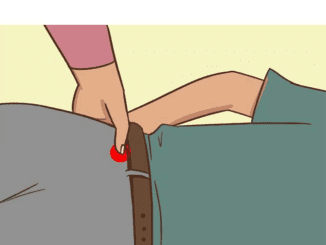Oral hygiene is a critical aspect of our daily routines, but have you ever stopped to think about how often you should be brushing your teeth? For many, brushing is second nature—but what if too much of a good thing could actually harm your teeth? This article explores the potential dangers of over-brushing, the science behind proper brushing habits, and how to avoid damaging your tooth enamel in the process.
The Importance of Tooth Enamel

Tooth enamel is the thin, hard outer layer of your teeth, and while it’s the strongest substance in the human body, it’s not indestructible. Enamel plays an essential role in protecting the inner layers of your teeth from physical damage, acids, and bacteria. It acts as your teeth’s defense system against the constant threats they face in daily life.
However, once enamel is worn down, it can’t regenerate. This means that maintaining its integrity is crucial for long-term dental health. Without sufficient enamel, your teeth become more susceptible to decay, cavities, and increased sensitivity.
How Often Should You Brush Your Teeth?
Most dentists recommend brushing your teeth twice a day—once in the morning and once before bed. This routine helps remove plaque, bacteria, and food particles that accumulate throughout the day and night. But here’s the kicker: brushing more often doesn’t necessarily mean better oral health.
You might be thinking, “More brushing = better teeth,” right? Not always. While brushing more frequently may seem like a good idea, excessive brushing can actually cause more harm than good.
The Risks of Over-Brushing
Over-brushing refers to brushing your teeth too often or using too much force while brushing. While it may seem like a harmless act, over-brushing can cause serious damage to your tooth enamel and gums.
Video : Can Tooth Enamel Grow Back? (How To Prevent Enamel Erosion)
1. Toothbrush Abrasion
When you brush your teeth too frequently or too aggressively, it can lead to a condition called toothbrush abrasion. This is when the enamel starts to wear away from excessive friction. Over time, this abrasion can result in increased tooth sensitivity, discoloration, and a higher risk of cavities.
2. Gum Recession
In addition to wearing down enamel, brushing too forcefully can damage your gums. This can lead to gum recession, where the gum tissue pulls away from the teeth, exposing sensitive tooth roots. Receding gums can increase the risk of periodontal disease and tooth loss.
3. Increased Sensitivity
Excessive brushing causes the enamel to erode, which can leave the sensitive layers of your teeth exposed. This may result in heightened sensitivity to hot, cold, or sweet foods and beverages.
Signs Your Enamel Might Be Damaged
If you’ve been brushing more than necessary, you may start to notice a few red flags indicating that your enamel is being compromised. Watch out for:
- Increased sensitivity to hot, cold, or sugary foods and drinks.
- Visible grooves or wear on the surface of your teeth.
- Yellowing of teeth, as the dentin beneath the enamel becomes exposed.
If you notice these signs, it’s time to reassess your brushing habits and visit a dentist for a professional evaluation.
Expert Recommendations on Brushing Habits

While brushing twice a day is generally sufficient, it’s the technique that truly matters. Here are some expert-backed recommendations to ensure you’re protecting your enamel:
1. Brush with a Soft-Bristled Toothbrush
A soft-bristled toothbrush is gentle on your gums and enamel, helping to avoid unnecessary damage. Hard-bristled brushes may seem like they clean better, but they can cause abrasion over time.
2. Use Fluoride Toothpaste
Fluoride strengthens tooth enamel and protects against decay. Make sure to choose toothpaste with fluoride to enhance the effectiveness of your brushing routine.
3. Avoid Brushing Immediately After Meals
After eating, especially acidic foods like citrus, your enamel becomes temporarily softened. Brushing immediately afterward can cause more harm by scraping away softened enamel. Instead, wait 30 minutes before brushing.
4. Floss and Use Mouthwash
Brushing alone isn’t enough. Add flossing and mouthwash to your routine to maintain complete oral hygiene. These steps help remove plaque between your teeth and provide additional protection against bacteria.
How to Protect Your Tooth Enamel

To maintain healthy enamel, it’s essential to find a balance between proper brushing and protecting your teeth from damage. Here are some tips for enamel protection:
1. Gentle Brushing Technique
When brushing, use a gentle circular motion rather than scrubbing back and forth. Applying too much pressure can harm both your teeth and gums. Let the brush do the work for you!
2. Use an Electric Toothbrush
Electric toothbrushes with built-in pressure sensors can be incredibly helpful. These brushes alert you when you’re applying too much pressure, making it easier to protect your enamel from damage.
3. Stay Hydrated
Drinking plenty of water throughout the day helps rinse away food particles and bacteria. It also stimulates saliva production, which helps protect enamel and neutralize acids in your mouth.
4. Avoid Acidic Foods
Limit the consumption of acidic foods, such as citrus fruits, soda, and vinegar-based dressings. These foods can weaken enamel and contribute to its erosion.
Communicating With Your Partner About Brushing Habits
Video : Remineralize Tooth Enamel Easily At-Home
If you’re concerned about your partner’s brushing habits, it’s important to approach the subject with sensitivity and understanding. Instead of criticizing, focus on sharing helpful information about how excessive brushing can damage enamel and lead to other dental issues. Encourage a joint visit to the dentist for personalized advice and to ensure both of you are maintaining healthy brushing habits.
Conclusion: Maintaining Healthy Teeth and Enamel
When it comes to oral hygiene, less is often more. Brushing your teeth twice a day with the right technique, using a soft-bristled brush, and avoiding over-brushing are key to preserving your tooth enamel and ensuring long-term oral health. By following expert recommendations, you can protect your enamel, maintain healthy teeth, and avoid unnecessary dental damage.
Remember, your teeth are an investment in your overall health. By taking proper care of them, you can ensure a bright, healthy smile for years to come. So, next time you reach for your toothbrush, remember that balance and technique matter more than frequency!


